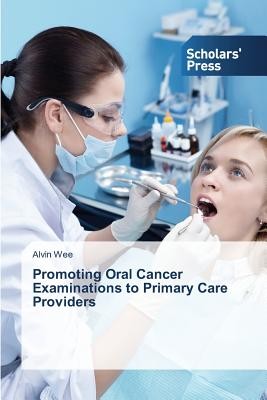
- We will send in 10–14 business days.
- Author: Alvin Wee
- Publisher: Scholars' Press
- Year: 2015
- Pages: 184
- ISBN-10: 3639766024
- ISBN-13: 9783639766028
- Format: 15.2 x 22.9 x 1.1 cm, softcover
- Language: English
- SAVE -10% with code: EXTRA
Promoting Oral Cancer Examinations to Primary Care Providers (e-book) (used book) | bookbook.eu
Reviews
Description
Patients at risk of developing oral and/or oropharyngeal cancer are more likely to see primary care providers (physicians, physician assistants, or advanced practice registered nurses) than dentists. Many primary care providers do not regularly perform oral cancer examinations. Opportunistic annual nonsymptomatic oral cancer examinations by trained primary care providers may result in consistent early detection of this disease at an early stage, which could result in lower treatment morbidity and mortality. This study's purpose was to determine the effects of a web-based educational intervention targeting primary care providers regarding their short-term knowledge and frequency of conducting oral cancer examinations on their patients.
EXTRA 10 % discount with code: EXTRA
The promotion ends in 18d.06:04:22
The discount code is valid when purchasing from 10 €. Discounts do not stack.
- Author: Alvin Wee
- Publisher: Scholars' Press
- Year: 2015
- Pages: 184
- ISBN-10: 3639766024
- ISBN-13: 9783639766028
- Format: 15.2 x 22.9 x 1.1 cm, softcover
- Language: English English
Patients at risk of developing oral and/or oropharyngeal cancer are more likely to see primary care providers (physicians, physician assistants, or advanced practice registered nurses) than dentists. Many primary care providers do not regularly perform oral cancer examinations. Opportunistic annual nonsymptomatic oral cancer examinations by trained primary care providers may result in consistent early detection of this disease at an early stage, which could result in lower treatment morbidity and mortality. This study's purpose was to determine the effects of a web-based educational intervention targeting primary care providers regarding their short-term knowledge and frequency of conducting oral cancer examinations on their patients.


Reviews